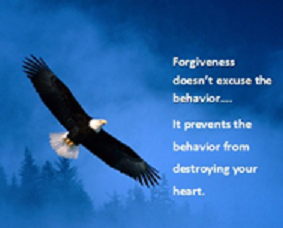Reclaiming Your Personal Power
As a counsellor I have seen many people struggle with bitterness and resentment. One of the most dangerous things a person can do is to hold onto these emotions. Clinging to bitterness and resentment has far-reaching and often unexpected consequences. These emotions impact the mind and spirit, and affect people physically.
Unforgiveness Can Cause Health Problems
When people are bitter, they live with tension and anxiety which affects everything from muscles to chemical balance in the brain. Over time, the body is weakened. Writing in the journal Social Psychiatry and Psychiatric Epidemiology in 2010, researchers reported that those who held grudges had higher rates of heart disease and cardiac arrest, elevated blood pressure, stomach ulcers, arthritis, back problems, headaches, and chronic pain than those who didn’t share this tendency. When you dwell on grudges, the stress you carry damages the body and may compromise your immune system, making you less resistant to illness. Forgiving and releasing anger toward people that have hurt you is the course of action recommended by most psychologists.
Sometimes it is very hard to forgive because we naturally want revenge for the things we have suffered. Forgiveness seems to go against our sense of what is right and fair. So we hold on to our anger, punishing people over and over again in our minds for the pain they’ve caused us. Unfortunately, as long as you refuse to forgive, you are still hooked to that person and you are chained to your past, bound up in your bitterness.
Forgiveness Does Not Mean Forgetting
Many people fail to forgive because they don’t understand what it really means. When you forgive, you do not gloss over or deny the seriousness of an offense against you. Forgiveness does not mean forgetting, nor does it mean condoning or excusing offenses. Though forgiveness can help repair a damaged relationship, it doesn’t obligate you to reconcile with the person who harmed you, or release them from legal accountability. Forgiveness is a conscious, deliberate decision to release feelings of resentment or vengeance toward a person or group who has harmed you, regardless of whether they actually deserve your forgiveness.
Benefits of Forgiveness
Research over the past few decades has revealed enormous personal benefits to forgiveness. According to that research, forgiveness will:
- Make you happier
- Improve your health.
- Benefit you spiritually and emotionally.
- Bring peace of mind and free you from corrosive anger.
While there is some debate over whether true forgiveness requires positive feelings toward the offender, experts agree that it at least involves letting go of deeply held negative feelings. It empowers you to recognize the pain you suffered without letting that pain define you, enabling you to heal and move on with your life.
Don’t wait until you feel like forgiving. It will never happen. Living a full, healthy life is the best revenge. Instead of focusing on your wounded feelings, which gives power to the person who caused you pain, make a choice to forgive and reclaim your personal power.
If you need help with forgiveness, please contact Edmonton Counsellor & Life Coach Wendy Rhyason at wendy@wrhyason.ca or phone or text 780-289-8235.
————————————————————————————————————–
Edmonton Counsellor & Life Coach – Wendy Rhyason, MA Counselling Psychology